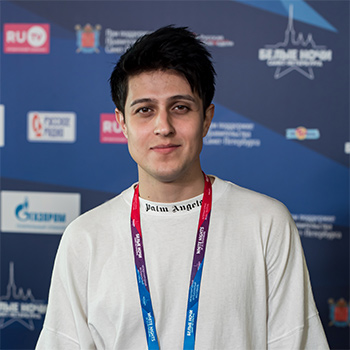

Pavlyky International is a Ukrainian music project founded by producers Vlad Sotnikov and Mykhailo Yasinskyi in late 2007. The group became one of the most unusual phenomena on the domestic pop scene of the late 2000s thanks to a combination of international lineup, club-dance aesthetics, and the legacy of popular Ukrainian artist Viktor Pavlik.
Concept and project idea
The core concept was to adapt Viktor Pavlik’s hits for a new audience — generations raised on club culture, remixes, and modern production. The producers bet on fresh energy, young voices, and dance-floor arrangements.
The word International wasn’t a marketing ploy but a statement of fact: from the outset, members came from different countries:
-
Michael Bans — Poland (vocals),
-
MC Cupid — Slovakia (MC/rap),
-
DJ Jackson — Madagascar (DJ/production),
-
Oleksandr Kalashnykov (until 2009) — Ukraine (dance and vocal support).
At launch, the average age of the members barely exceeded 18, which naturally oriented the group toward a youth audience.
Launch and first steps
The official start date of the project is December 12, 2007. The first shows took place in Ukrainian clubs, where the act immediately drew attention with sincere energy, striking choreography, and a contemporary sound.
Although Viktor Pavlik was initially skeptical about “rejuvenating” his repertoire, he later acknowledged that the interpretations sounded vivid and up-to-date.
First releases and success
The group’s debut album — “Pavlyky Int. No. 1”, aimed at club audiences — quickly spread across dance floors nationwide. Radio stations put the tracks in heavy rotation:
-
“Superpesnya” (“Super Song”),
-
“Davai Kachai” (“Come On, Pump It Up”),
-
“Gorod zelenogo tsveta” (“City of Green”).
Their videos racked up strong online views, while audiences highlighted the unique blend of multiculturalism, Ukrainian pop melodicism, and a European club drive.
In 2009, the video for “Superpesnya” won an online users’ poll in the “Best Video of the Year” category. After Alex left, the act became a trio, yet productivity and live activity remained high.
Musical style and traits
The group’s style can be described as:
-
club remix culture,
-
light hip-hop infusions,
-
elements of Ukrainian melodic tradition.
The sound leaned on the members’ strengths:
-
DJ Jackson — club remixes, groove design,
-
MC Cupid — stage delivery, crowd control,
-
Michael — lead vocals, timbral drive.
Repertoire evolution
Over time the music became more reflective, with touches of humor and self-irony. Still, the dance orientation remained central.
The video “Tulovishche nu voobsche” (“The Body, Like, Totally”) confirmed the group hadn’t lost its spark and could still generate viral visual content.
Conflict and cooperation
As the project developed, legal and creative disagreements arose between Viktor Pavlik and the group’s members. However, it never turned into a public “celebrity feud”: both sides chose to resolve issues “within the family.” After misunderstandings were settled, cooperation continued within live shows and remix licensing.
Cultural value of the project
Pavlyky International stand out because they:
-
integrated Ukrainian music into a club format,
-
drew attention to the heritage of domestic pop culture,
-
demonstrated the viability of multicultural lineups,
-
became a bridge between generations of listeners.
Many critics note that the group became a Ukrainian analogue of the Western dance-cover movement — classic songs received a completely new life.
Image and stagecraft
On stage, Pavlyky International is all about:
-
expression,
-
choreography,
-
club-style MC control,
-
humorous asides,
-
active interaction with the crowd.
The project performed widely at major venues and festivals while remaining in demand on the club circuit.
Fun facts
-
From the start, the repertoire included not only Viktor Pavlik’s songs but also original material.
-
The group positioned itself as a “dance machine” capable of igniting any venue.
-
The members spoke Ukrainian and showed respect for the culture despite their diverse origins.
-
Some critics called the project “the most positive reincarnation of Ukrainian hits.”
Conclusion
Pavlyky International is one of the most unusual acts in late-2000s Ukrainian show business. The project is both nostalgic and modern: it gave Viktor Pavlik’s hits a second life, adapted them to the club rhythms of the 2000s, and became an entry point into Ukrainian pop culture for many listeners.
The combination of an international lineup, professional production backing, dance-floor energy, and respect for national musical tradition made the group a noteworthy force on the scene. Despite lineup changes and occasional frictions, the act remains in demand — proof that music born at the crossroads of cultures and generations can have a long life.







